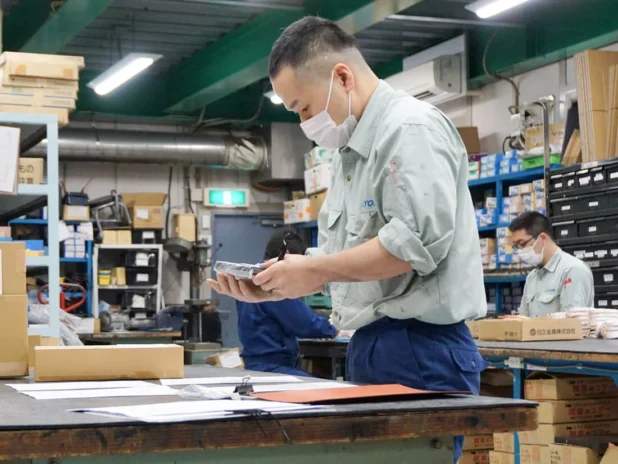Equipment appraisal plays a crucial role in various industries, providing valuable insights into the value and condition of machinery, tools, and other assets. Whether you’re a business owner, investor, lender, or insurance provider, understanding this process is essential for making informed decisions. In this blog post, we will delve into the world of equipment appraisal, uncovering its purpose, significance, and the impact it has on financial decision-making and insurance coverage.
Table of Contents
Key Steps Involved in the Equipment Appraisal Process
Equipment appraisal involves a systematic evaluation of the value and condition of equipment. The process typically follows several key steps to ensure accuracy and reliability. Firstly, the appraiser identifies the purpose of it, whether it’s for financial reporting, insurance, taxation, or litigation. Next, the appraiser conducts a thorough inspection of the equipment, assessing factors such as age, functionality, maintenance history, and market demand. Once the inspection is complete, it selects an appropriate valuation method and performs a detailed analysis to determine its fair market value.
Different Methods Used for Equipment Valuation

Equipment valuation can be approached using various methods, depending on its nature and the purpose of the appraisal. The three most commonly used methods are the cost approach, market approach, and income approach. The cost approach considers the replacement cost of the equipment minus any depreciation. The market approach compares its value to similar items sold in the market. The income approach assesses its value based on its potential income-generating capacity.
Factors Influencing the Value of Appraised Equipment
The value of appraised equipment is influenced by a multitude of factors. These include the age and condition of it, technological advancements, market demand, and the economic climate. Additionally, its brand reputation, historical sales data, and the availability of spare parts can also impact its value. A skilled equipment appraiser takes all these factors into account during the appraisal process to provide an accurate valuation.
Understanding the Role of Appraisers in the Process
Appraisers play a vital role in the equipment appraisal process. They are highly trained professionals who possess extensive knowledge and experience in assessing and valuing various types of equipment. Their role goes beyond mere valuation, as they also provide expert insights on market trends, industry standards, and the overall condition of it.
Benefits of Conducting Regular Equipment Appraisals

Regular equipment appraisals offer numerous benefits to businesses and individuals alike. Firstly, they provide an accurate picture of the value of assets, aiding in decision-making processes such as buying, selling, or securing financing. Moreover, they help in determining the depreciation of assets for tax purposes. Additionally, by identifying maintenance and repair needs, they contribute to improved equipment management, reducing the risk of unexpected breakdowns and costly downtime.
Common Challenges Faced During Equipment Appraisal and Their Solutions
Equipment appraisal can present challenges that require careful consideration and problem-solving. One common challenge is obtaining accurate equipment information, especially when dealing with older or specialized machinery. This can be overcome by engaging qualified appraisers who have access to extensive databases and industry resources. Another challenge is determining the appropriate valuation method for unique or customized equipment. In such cases, they rely on their expertise and utilize a combination of valuation approaches to reach an accurate assessment.
The Impact of Equipment Appraisal on Financial Decision-Making
Equipment appraisal plays a crucial role in financial decision-making for businesses and investors. Accurate valuations enable informed decisions regarding asset acquisition or divestestment. By knowing the fair market value of equipment, businesses can make strategic decisions on purchasing new one, upgrading existing assets, or selling underutilized machinery. Lenders also rely on them to assess the value of collateral when providing loans or financing. These valuations provide a clear understanding of the worth of the assets being used as security, reducing the risk for both the borrower and the lender.
How Equipment Appraisal Affects Insurance Coverage and Premiums

Insurance coverage for equipment is a critical consideration for businesses, protecting them against potential losses due to damage, theft, or other unforeseen events. Equipment appraisal directly impacts insurance coverage and premiums. When insuring equipment, the insurer needs an accurate valuation to determine the appropriate coverage limits. Underinsuring can leave a business vulnerable to significant financial losses, while overinsuring can lead to unnecessary expenses. An equipment appraisal provides the necessary information for insurance providers to tailor coverage based on its actual value, ensuring adequate protection while optimizing premiums.
Case Studies Highlighting the Importance of Equipment Appraisal
To further illustrate the importance and impact of equipment appraisal, let’s explore a few real-world case studies.
In the construction industry, a contractor was considering purchasing a used crane to expand their fleet. Before finalizing the transaction, they commissioned an equipment appraisal to determine the crane’s value and condition. it revealed significant maintenance issues and a lower market value than initially anticipated. Armed with this information, the contractor negotiated a lower purchase price, saving substantial funds and avoiding potential operational setbacks.
Another case involves a manufacturing company seeking financing to upgrade their production line. To secure the loan, the lender required an appraisal of the existing machinery. It highlighted the market value of the equipment, demonstrating its potential resale value in the event of default. This information provided the lender with the confidence to approve the loan, enabling the manufacturer to enhance their operations and increase productivity.
These case studies emphasize the critical role of equipment appraisal in making informed decisions and mitigating risks.
Conclusion

Equipment appraisal is a multifaceted process that brings clarity and understanding to the value and condition of machinery and assets. By following key steps and employing various valuation methods, appraisers provide accurate assessments that enable informed decision-making. Their role of impartial experts is invaluable in ensuring fairness and accuracy throughout the appraisal process.
Regular appraisals offer numerous benefits, including enhanced financial decision-making, improved asset management, and optimized insurance coverage. While challenges may arise during the process, engaging qualified appraisers and leveraging their expertise can overcome these obstacles.
Ultimately, equipment appraisal directly impacts financial outcomes and risk management. It facilitates strategic business decisions, influences insurance coverage and premiums, and provides a foundation for transactions involving equipment. The insights and information derived from its appraisal empower businesses, investors, lenders, and insurance providers to navigate the dynamic landscape of equipment ownership and make sound choices that drive success and mitigate risks.
 World Magazine 2024
World Magazine 2024






